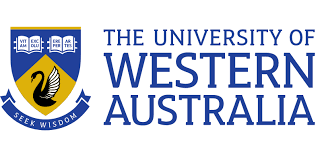Biomedical science has direct relevance to everyone; it has a defining influence on our quality of life, the pursuit of healthy living and our capacity to diagnose and treat disease.
Biomedical Science encompasses a range of biological, medical and health-related disciplines, which address global biomedical challenges such as obesity, cancer, neurological diseases and cardiovascular disease. It draws on the disciplines of anatomy, physiology, biochemistry and neuroscience to understand normal human biology (including our evolutionary history). It also uses the paraclinical disciplines of microbiology, pathology and pharmacology to understand and treat human disease.
You'll have the opportunity to pursue advanced study in your biomedical science specialisation. Emphasis is placed on cutting-edge research and its translation to healthy living and to clinical settings of diagnosis and treatment of disease. While research training within a specific discipline is available as part of the course (e.g. advanced laboratory skills and their application within an independent research project), this is not obligatory. Therefore, you'll be able to focus on building discipline-specific knowledge and an understanding of how this knowledge is applied.
Regardless of the amount of research training undertaken, the course places strong emphasis on developing research literacy, with thorough interrogation of the scientific literature and its communication.
Specialisations:
Biochemistry and Molecular Biology specialisation
In this specialisation you will gain an advanced level of understanding of current biochemistry and molecular biology techniques and their application to emerging questions.
Food Biochemistry specialisation
This specialisation focuses on the integration of knowledge and concepts of nutritional biochemistry and its application to the food and health industry. You will gain an appreciation of both the clinical relevance of nutritional biochemistry, such as the influence of dietary modification on health and disease and also the commercial relevance of nutritional biochemistry, and the impact of food production and processing on food constituents and nutrients in commercial products.
Neuroscience specialisation
The units at Master's level offer in depth focus on applying Neuroscience in the context of human health. The unit sequence integrates science communication skills with work integrated learning opportunities, which are highly relevant to understanding the impact and management of the devastating neurological conditions that disproportionately contribute to the health challenges in our ageing population.
The specialised units at level 5 provide outstanding practical experiences through case studies and direct interactions with patients with neurological conditions, introduction to advanced scientific research technologies, as well as the opportunity to apply neuroscience principles to sport science and exercise physiology.
The Masters course represents the breadth of neuroscience and prepares graduates for a range of career options:
- Further study and research in a range of disciplines including neuroscience, psychology, anthropology, anatomy, physiology, genetics, sports science and health
- Health care professionals and allied health, including rehabilitation and exercise programs, clinical trial management
- Consulting and policy advisory roles
